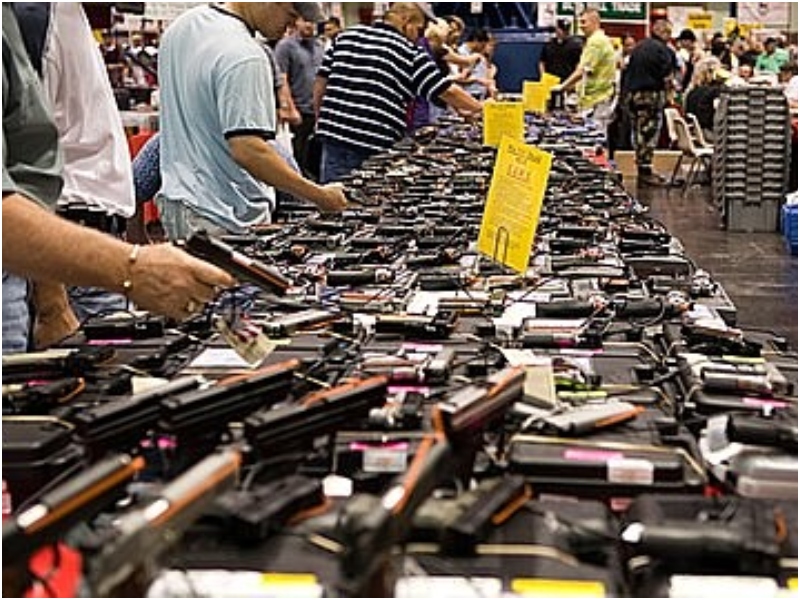The Biden administration has taken a significant step in its efforts to combat gun violence by finalizing a rule aimed at closing the so-called “gun show loophole.”
The new rule, announced by the Justice Department on Thursday, April 11, will require individuals selling firearms online and at gun shows to conduct background checks on potential buyers.
Under the finalized rule, those who sell guns predominantly to earn a profit will be required to obtain a federal firearms license (FFL) and conduct background checks, regardless of whether the sales take place online, at a gun show, or in a physical store.
Attorney General Merrick Garland said the move is important in improving market regulation and ensuring compliance with federal background check requirements.
Vice President Kamala Harris highlighted the timing of the rule’s finalization, just days before the 25th anniversary of the Columbine High School shooting.
She underscored the impact of gun violence on communities across the country and expressed hope that the new rule would help prevent future tragedies.
The Bipartisan Safer Communities Act, passed in 2022, laid the groundwork for the expanded definition of engaging in the business of firearms dealing, which now includes individuals who regularly buy and sell firearms for profit. President Biden’s executive order further directed the DOJ to adopt a rule addressing this issue.
In addition to defining who is “engaged in the business” of selling firearms, the new rule clarifies regulations surrounding personal firearms collections and outlines procedures for FFLs going out of business.
While the rule is expected to impact over 20,000 individuals engaged in unlicensed firearms sales, it has already faced criticism from conservative lawmakers and gun rights advocates, including the National Rifle Association (NRA). The NRA has denounced the rule as an attack on law-abiding gun owners and has vowed to use all available means to oppose it.
The finalized rule will be published in the Federal Register and is set to go into effect in 30 days, marking a significant milestone in the Biden administration’s efforts to address gun violence through regulatory measures.

